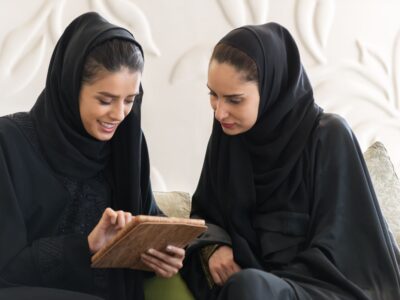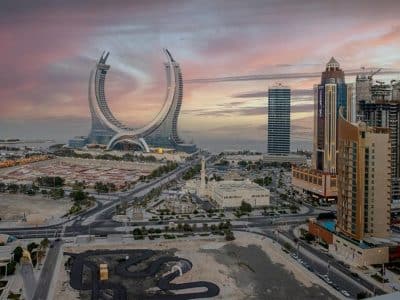In the recent context of the sad passing of the second president of the United Arab Emirates, all who call this great country home can take great strength from the swift and decisive response following.
By unanimously appointing Sheikh Mohammed bin Zayed as the nation’s new president, we see a great unity of thought from the rulers on where they want to take this country in the future. Continuing the path already mapped out by the previous two great presidents, this refreshed leadership points towards a new historical era built on a foundation of considered stability.
Similar strengths in forward planning and agility apply to countries and regions but also in the business world, where family businesses are rediscovering their role in an increasingly purpose-driven landscape.
A 2021 report into family businesses in the Middle East outlined it quite clearly – family businesses are transforming for a sustainable future. They are not beholden to shareholder dividends and are therefore freer to make decisions for the long-term benefit of the business, and take into account the ramifications felt by employees, owners and customers alike for many years to follow.
The outlook seems to point in a positive direction for family-owned businesses as they continue to modernise approaches and processes, taking the best aspects of their publicly-listed competitors whilst focusing on increasingly diversified, reinvested and digitised strategies.
Whilst we are all keen to move beyond referencing the pandemic, we simply cannot ignore the last 24 months and focus on the rose-tinted outlook seemingly painted by the above-mentioned report. They dig deeper and highlight five trends that also came out of the survey, which translate well across all businesses I feel, both family-run and otherwise. Some of the key learnings I pulled from the report:
Diversification breeds success
Family businesses have traditionally been borne from one particular area of skill or investment and grown somewhat organically. The key priority for Middle East family businesses over the next two years is exploring and expanding into new markets or client segments so this shows the need to maintain growth. The next two most popular responses -use of new technologies and improving digital capabilities- point the way as to how CEOs intend to achieve that growth.

To thrive you must transform
Though in a strong and unique position to lead the way post-pandemic, as they did post-2009 financial crisis, family businesses overall struggle to embrace change. Our Middle Eastern family business CEOs surveyed are acutely aware of this, and also that they are likely to be digitally disrupted if they don’t make the leap first. The pandemic already accelerated digital transformation so, to stay ahead and maintain some sort of competitive advantage, strategic investment in innovation must remain.
The need for cautious resilience
Family businesses have been able to adapt quickly to changing conditions, an invaluable capability during the pandemic. Even so, the already challenging economic conditions meant that family businesses in the Middle East made more sacrifices than their global peers – predominantly in the form of reduced dividends and bonuses – in order to ride out the crisis and come through it together.
Families in the region have displayed a clear willingness to sacrifice personal gain in order to keep their businesses healthy during the crisis, possibly with an eye on the longer term success than immediate gains. An admirable leadership trait we can all learn from.
Balancing family values, trust and conflict is crucial
While incidences of family conflicts in the region have risen in recent years, overall, family businesses feel that trust and communication levels are good; two-thirds say non-board family members have a high level of trust in family members that sit on the board.

But there are signs of unrest – only 47 percent say that the family is aligned on the direction of the company, and only 48 percent agree that relevant information is shared in a transparent and timely way among family members (compared with 64 percent globally). For regional family business to punch above their weight these averages need to increase significantly, with the board, and inclusion of external parties, playing a key role.
Make an impact
The pressure on all businesses to contribute to a better society is increasing, bringing actions around a sustainability agenda into the spotlight. Companies are expected to demonstrate their commitment to sustainability with concrete actions – and public companies are responding to this trend more effectively than family businesses.
Public companies have been steadily nudged into improving their sustainability practices and policies by pressure from customers, investors, the media and even employees in recent years – and as a result, they have claimed the environmental, social and governance (ESG) stage. It is now a business imperative, not a nice-to-have and ESG practices need to be baked into every business decision.
The emboldening combination of people-centric planning for the future with an in-built succession planning might be the magic ingredient that sees family businesses flourish. It is this agility and level of togetherness that gives me faith in companies like KROHNE to continue to succeed across its commercial operations as we move forward together.








